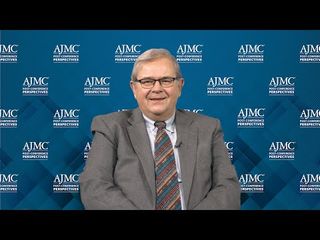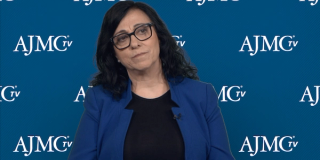
Policy
Latest News
Latest Videos

More News

The birth rate in the US continues its 17-year decline, with fertility levels now at their lowest in decades, according to CDC data.

The majority of federal savings indicated by the Inflation Reduction Act's Drug Price Negotiation Program can be attributed to 3 drugs.

Changes in formulary coverage for 2024 are impacting Medicare patients' access to and ability to afford various prescription medications.

Adverse outcomes in the aftermath of the COVID-19 pandemic continue to be evaluated as they pertain to social determinants of health, with these authors investigating improvements in food hardship among families participating in the Supplemental Nutrition Assistance Program (SNAP).

Some groups praised CMS after it announced the 10 negotiated Medicare drug prices while others criticized its potential impacts on drug competition and development.


Health plans can improve their Medicare Advantage Star Ratings by focusing on member relationships, ensuring proper documentation, grouping measures, staying updated with regulatory changes, and optimizing their strategy based on numerical targets.

This article first appeared on The Center for Biosimilars®.


CMS today announced the agreed-upon lower prices for all 10 drugs selected for price negotiations under the Inflation Reduction Act.

On this episode of Managed Care Cast, we discuss strategies to improve 2025 Medicare Advantage Star ratings, especially for smaller plans, with Marge Ciancetta, the product manager of Cotiviti's Star Intelligence solution.

Health insurance premiums for 2025 are expected to rise slightly due to higher prescription drug costs and inflation, according to a new analysis from the American Academy of Actuaries.

As the 2024 election approaches, older adults, who comprise more than half of ballots cast, are highly concerned about health care costs, financial scams, and fraud. Concern varies based on gender and political ideology.

This commentary explores how 2 recently published studies evaluating the clinical benefit of the FDA’s accelerated approval program for oncology drugs came to different conclusions.

Homebound beneficiaries of a national Medicare Advantage (MA) plan had higher health service use and mortality rates, highlighting the need for tailored care strategies for this population.

A rundown of where Minnesota Gov Tim Walz stands on health policy issues and actions he's taken to improve health care.

Medicare Advantage customer service supports a less healthy, higher-need population, indicating that it should be designed and staffed to effectively serve complex, high-need patients.

Vorasidenib becomes the first targeted therapy for grade 2 isocitrate dehydrogenase (IDH)–mutant glioma to receive FDA approval.

CDC’s Advisory Committee on Immunization Practices (ACIP) revises respiratory syncytial virus (RSV) vaccination guidelines to prioritize older adults and those at higher risk of severe disease.

Minnesota Gov. Tim Walz has been named as Vice President Kamala Harris' Democratic running mate for the 2024 presidential election and has a proven track record in health care reform.

Real-world cross-validation of insurer and hospital price transparency data finds low overlap but high concordance between data sources.

The effects of the COVID-19 pandemic continue to reverberate, as shown in these new data from surveys of adults in the 50 states conducted over approximately 4 years.

There will likely be a 7% increase in Affordable Care Act (ACA) Marketplace plan premiums next year across the 324 participating insurers from the 50 states and Washington, DC.

This article reviews the obesity epidemic in America and discusses inadequate insurance coverage.

As pharmacy benefit managers (PBMs) come under increased scrutiny from regulatory agencies, here are 5 things to know about their role in the health care system.











